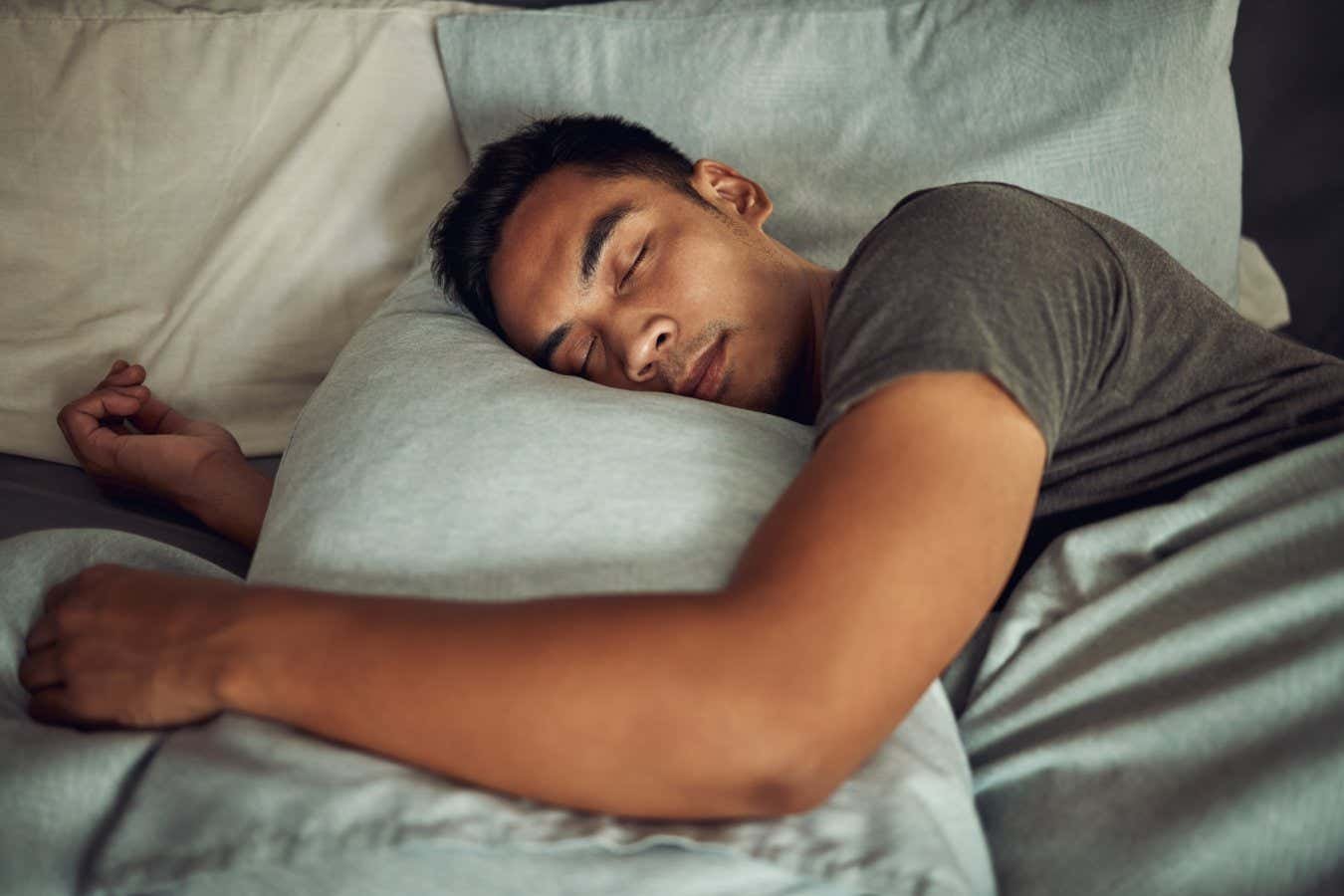Sleep can be experienced very differently from a person to the next
Peopleimages/Shutterstock
Different people can experience one of five types of sleep, and these profiles each highlight how to Ouye ou health.
Previous research has found the relationships between sleep and cognition, meental health and physical conditions, such as heart disease. But these studies often look at the relationship with only one aspect of sleep, such as its duration or quality.
To take a more holistic approach, Valeria Kebets at Concordia University in Montreal, Canada and her Colugues analysis of the connection between seven factors related to sleep – such as sleep satisfaction and the use of sleeping aids – and 118 other goals, including cognition, drug use and mental health. The collection data includes cognitive tests, sleep studies and brain scans from 770 healthy adults aged 22 and 36 in the United States.
From this, the researchers identified five different sleep profiles. The first was characterized by a general pattern of poor sleep – greater sleep disorders, reduced sleep satisfaction and things to sing time to fall asleep – and worse mental health, such as depression and anxiety symptoms, as well as anger, long and stress.
The brain dunters of people in this group also showed a reduced link between networks involved in self -reflection, such as the temporal network, and those responsible for attention and tasks, such as somatomotor and dorsal precautionary networks. This may indicate disturbance in the brain’s ability to switch between the inner and other world, according to the researchers. For example, people in this category can be ruminated about their thoughts and feelings rather than focusing on their external environment.
People in the second sleep profile also showed signs of worse mental health, especially related to inattention, but not IFP difficulties. Rather, they generally had decent sleep. “We have interpreted this as sleep resistance,” says Kebets. “So worse mental health that does not affect sleep.” People who fit this profile also lacked brain connection patterns seen with the first group, suggesting that these patterns are specifically related to sleep rather than overall mental health.
Meanwhile, the third profile showed a relationship between sleep aids – such as prescription or even just tea marketed as helping sleep – and pointer memory and emotional recognition, which is the ability to identify someone’s emotional state through signals body language. This could explain why people who have this profile had reduced connection in brain areas involved in vision, memory and emotion.
The fourth profile was characterized by getting fewer than 7 hours of sleep at night, the recommended amount as at least. This was associated with worse accacair and longer reaction times on cognitive tests that measure emotional treatment, language and social skills. This profile was also associated with more aggressive behavior and incredible connection across brain networks. Previous studies of sleep deprivation have found similar increases in connection, suggesting that this is a sign of sleep debt.
Aggression also occurred in the fifth profile, which was characterized by sleep disorders, such as waking up several times at night. These disturbances we associated with worse language treatment and working memory, as well as signs of poor mental health, included anxiety symptoms and drug abuse.
These findings bring us closer to understanding the complex relationship between sleep and health, says Kebets. “Sleep is so central to your sense of well-being, and it is related to cognition, to physical health, to mental health, to drug use-so many aspects of your function.”
But not all the participants fit nicely into a profile, says Kebets. The researchers also did not find evidence of causal conditions between sleep profiles and traits, only of associations. Undoubtedly, there will also be a significant part of people who regularly experience good quality sleep. In addition, participants were mostly white, so the study may have mashed sleep profiles that exist among other ethnic groups.
Topics:
